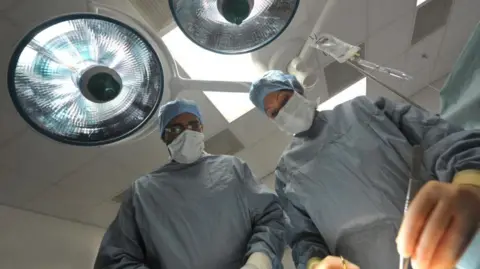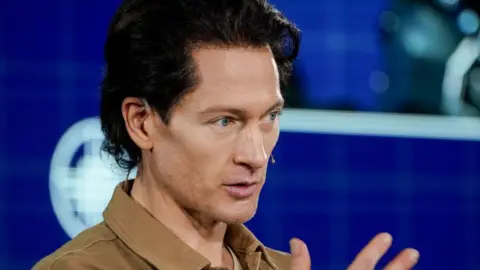Hot mic captures Xi and Putin on organ transplants and living to 150; scientists urge caution
A brief conversation at a Beijing parade about transplantation and 'immortality' highlights public fascination with longevity while experts point to scientific limits and ethical concerns.
Chinese President Xi Jinping and Russian President Vladimir Putin were overheard discussing the possibility that organ transplants could dramatically extend human life — even to 150 years or beyond — during a filmed walk at a military parade in Beijing, a hot-mic moment that has prompted scrutiny from scientists and ethicists.
The exchange, carried on a live feed from Chinese state media and translated by multiple outlets, featured a Mandarin interpreter relaying remarks attributed to Putin that “human organs can be constantly transplanted so that people can get younger and younger, and perhaps even achieve immortality.” Xi is reported to have said “in this century, humans may live to 150 years old.” Putin later addressed the remarks at a news conference, saying modern health care and surgeries, including organ transplants, give reason to hope the active portion of life could increase substantially.

Transplantation medicine has indeed transformed survival for many patients, but researchers and clinicians say the rapid leap from life-saving surgery to reliably extending human lifespan into the many decades or achieving "immortality" is not supported by current evidence.
Organ transplants have saved tens of thousands of lives worldwide. In the United Kingdom, NHS Blood and Transplant says more than 100,000 people have been saved by transplants over the past three decades, and some kidneys have functioned for more than 50 years after surgery. Yet transplantation faces persistent challenges: donor organ shortages, immune rejection, infection and the need for lifelong immunosuppression that carries its own risks. Those limitations make repeated organ replacement for the purpose of halting or reversing ageing a far more complex proposition than the hot-mic comments suggest.

Experts also note that ageing is a systemic, multifactorial process, not solely the failure of individual organs. "Saying that repeated organ replacement will make people younger ignores wider biological processes of ageing — at the cellular and molecular level — that affect tissue integrity, immune function and metabolism," said Dr. James Markmann, a transplant surgeon quoted in coverage by U.S. media. He called the notion that transplantation alone will produce dramatic lifespan increases "unfounded" and urged attention to ethical issues and equitable access to care.
Research into extending healthy human lifespan is an active and broad field that includes, but is not limited to, transplantation. Scientists are investigating regenerative medicine, stem cell therapies, gene editing, senolytic drugs that remove senescent cells, metabolic and lifestyle interventions, and xenotransplantation — the use of animal organs in humans — to address organ shortages. Several countries, including China and Russia, have increased investment in longevity and biotechnology research, according to reporting by Time and other outlets, but the pace and outcome of those efforts remain uncertain.

The hot-mic moment took place as Xi, Putin and other leaders walked toward a viewing stand at a parade in Tiananmen Square. The remarks were translated on the spot and have been circulated widely online. Media organizations that published the clip noted that the tenor of the exchange was informal and punctuated by laughter and smiles.
Scientists caution that even with continued technological progress, fundamental barriers remain. Immune rejection has been mitigated in many cases by improved matching and better immunosuppressive drugs, and surgical techniques and post-operative care have improved graft survival. But replacing organs repeatedly over decades would require an ample, safe and ethically sourced supply of organs, strategies to avoid chronic immune damage and complications from lifelong immunosuppression, and solutions to ageing processes that impair wound healing and systemic resilience.
Public discussion of longevity often raises ethical and social questions as well. Access to advanced medical interventions tends to be unequal within and between countries. Policymakers, clinicians and bioethicists emphasise the need to balance investment in biomedical research with attention to fairness, informed consent, and transparent regulation. Some commentators also note the geopolitical optics of leaders publicly discussing life-extension technologies.
While transplantation and allied fields continue to push forward — with incremental improvements in graft survival, emerging trials in xenotransplantation and novel therapies in development — the scientific community broadly treats the claim that organ transplants alone will create substantially longer, let alone indefinite, human lifespans as speculative. Current evidence supports the role of organ transplantation in saving lives and improving quality of life, but not in delivering the kind of radical lifespan extension discussed in the Beijing conversation.
Further advances in biomedicine could change understandings of ageing and organismal repair in coming decades. For now, clinicians, researchers and ethicists emphasise realistic appraisal of what transplant science can achieve, the need for rigorous clinical testing of new interventions, and the importance of addressing equity and governance alongside technological development.